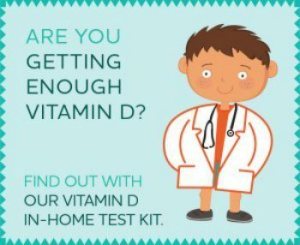Vitamin D and Teeth
Is Your Dental Health at Risk?
Vitamin D and teeth are incredibly important, yet almost completely overlooked in the medical field. When was the last time your dentist suggested that you might want to take Vitamin D for prevention of periodontal disease, gum disease and cavities? Never, I'm sure. We all hear about the importance of calcium for healthy bones and teeth, but the relationship of Vitamin D and teeth is seldom talked about, yet it is just as important.
Periodontal Disease
Vitamin D and periodontal disease are becoming inextricably linked. Periodontal disease, which incidentally is ALSO a Symptom of H Pylori Infection, is a weakening of the bone that anchors the teeth. It leads to redness, bleeding and inflammation of the gums (gingivitis) and may eventually lead to tooth loss if left untreated.
Vitamin D is extremely important in the process of keeping the teeth anchored into their sockets. Vitamin D research has shown that people with Vitamin D Deficiency are much more likely to have periodontal disease for various reasons. One reason is that the gene responsible for the expression of periodontal disease may be controlled by a Vitamin D receptor that is controlled by Vitamin D levels!!
 Why didn't anyone tell me about the connection between vitamin d and teeth?
Why didn't anyone tell me about the connection between vitamin d and teeth?This sounds complicated, but what it means is that Vitamin D acts as a "controller" of the genes in almost every cell in your body. When Vitamin D levels are too low, then the genes that are responsible for a variety of problems- in this case periodontal disease- get switched on and end up causing disease.
Another reason that Vitamin D affects periodontal disease in the Vitamin D and Teeth equation is that, according to The Boston University Goldman School of Dental Medicine , Vitamin D reduces gingivitis because of the anti inflammatory effects of the vitamin. They even suggest that gingivitis may be a “useful clinical model to evaluate the anti-inflammatory effects of Vitamin D.” This is interesting because disease in any form does not exist without inflammation. And Vitamin D deficiency is being correlated more and more with many disease states that are unrelated.
Unrelated except for the presence of inflammation -that is!!
While Vitamin D has not been tested as a treatment for periodontal disease, it makes sense to optimize your Vitamin D levels in your blood, as the need for treatment for periodontal disease may be an early Vitamin D deficiency symptom! Another reason that Vitamin D and teeth may be linked is that Vitamin D is a potent stimulator of the immune system, as I go into in greater detail in the Vitamin D Facts page. And when your
Immune System Health is good, you are less likely to get the bacterial infections in your gums that contribute to the need for treatment for periodontal disease.
Vitamin D and Strong Teeth
Nowhere is the relationship between Vitamin D and teeth more evident than in the general health and strength of teeth. Again, most people are aware of calcium’s role in strong bones and teeth, but Vitamin D is imperative in the regulation of that calcium.
The calcium that is present in bones and teeth is constantly in a state of movement. The calcium gets reabsorbed into the bloodstream if levels are low, and it is put back into bones and teeth when levels are higher.
But Vitamin D regulates this entire mechanism. When Vitamin D levels are low, no amount of calcium will go into bones and teeth, having a net effect of loss of calcium in these strong structures. The result can be osteoporosis, periodontal disease and.... weak teeth. All from Vitamin D deficiency!
Vitamin D and Teeth in Kids
A seriously overlooked reason to have excellent Vitamin D levels is for the Oral Health and Hygiene of children. In This Research Study they related higher levels of Vitamin D in the bloodstream of mothers to decreased cavities in their children!
Robert Schroth, one of the researchers commented, "This study shows for the first time that maternal vitamin-D levels may have an influence on the primary dentition and the development of early-childhood-caries," He's WRONG, however, in stating that this was the first study to link maternal Vitamin D levels with their kid's teeth.
A paper done in 1981 called Intrauterine vitamin D nutrition and postnatal growth in Asian infant also noticed the correlation. And more research from 1973 called Enamel hypoplasia of the teeth associated with neonatal tetany: manifestation of maternal vitamin deficiencyshowed that infants born with vitamin D deficiency were prone to a tooth condition called 'enamel hypoplasia' that predisposes them to bad teeth for the rest of their life!
Hmmm, maybe Dr. Schroth should read a little more! Also, there is a well established correlation between Rickets and Dental Enamel Hypoplasia - a condition of faulty development of the dental enamel that allows cavities to be more easily established. And as far back as 1939, astute researchers noticed that there was a relationship between Mean Annual Hours of Sunshine and the Incidence of Dental Caries A similar conclusion was reached by a study done in Great Britain in the 1990's. It seems that even during the Civil War they noted an increase in cavities and tooth loss in those who lived in more northerly climates. That's about 150 years of ignoring the evidence on Vitamin D and teeth!
Information about Vitamin D and Teeth is NOT NEW!!
When are we going to wise up and realize that the correlation between Vitamin D and teeth - as well as Vitamin D and most other chronic illnesses - is EXTREMELY important?! Vitamin D deficiency contributes to many other diseases as well. There are SO many diseases with a direct correlation to Vitamin D deficiency, it is TRAGIC that physicians aren't talking to their patients about its importance. Keep reading to find out more about the correlation between Vitamin D and specific health problems.
Vitamin D Resources
- Can You Prevent and Even REVERSE Gum Disease - Dr. Nara thinks that you can! Learn the secrets of Robert Nara, DDS as he teaches you what your dentist DOESN'T want you to know!
- 5000 IU Vitamin D 3 Supplements- Vitamin D3 is really the ONLY vitamin d that you should be taking. Get Vitamin D 3 in a clinically relevant dose for adults
| Frequently Asked Questions About Vitamin D | |
|---|---|
| How Much Should I Be Taking? | What About Overdose? |
| What Does Vitamin D Do? | What Causes Deficiency? |
| Don't Take That Prescription!? | What Foods Have Vitamin D? |
Still Have a Question
About Vitamin D?
Ask It Here!
See already answered Questions about Vitamin D and Teeth
Click below to see already answered questions from other visitors to this page...
Tooth and Hair Loss with Possible Vitamin D Deficiency
My gums and teeth are sore to brush and red with inflammation and my hair is falling out but neither my brilliant dentist or doctor are linking it to my …
D3 Deficient afterThyroidectomy
My doctor called me last week to say my vitamin D levels were too low. I had a thyroidectomy 20 years ago. I have periodontal problems. I had read that …
Vitamin D and teeth
I have a 15 year old son and everytime we go to the dentist he needs fillings. Today we went and he needs a couple of fillings that showed up on xray. …
decayed teeth
How much vitamin D3 should I give my 5 yr. old son who has had severe tooth decay? It has been a long road to try and figure out why he has had to deal …
Infant Cavities: Is there a Vitamin D link?
Some but not all of my children had/have badly decayed front teeth already in their first year even though they were not drinking from bottles.
I was …
Low Vitamin D vs. Oral Lichen Planus?
Is there any documentation regarding a link between low levels of Vitamin D and Oral Lichen Planus?
Vitamin D Deficiency and Teeth
My vitamin D level has been at 21 ng/ml for a year and a half. I have been on prescription medicine but still the level has not come up at all.
My …
Vitamin D and Bad Breath
Can being low in Vitamin D cause you to have bad breath?
Tooth Calcification and Vitamin D
I have needed 2 root canals in the past year. My dentist was unable to do them because of calcification. He was unable to get into the root.
My …
Research on Vitamin D and Teeth
- Prevalence of Caries among Preschool-Aged Children in a Northern Manitoba Community
- Enamel hypoplasia of the teeth associated with neonatal tetany: manifestation of maternal vitamin deficiency
- Rickets and Dental Enamel Hypoplasia
- Ultraviolet-B and vitamin D reduce risk of dental caries



